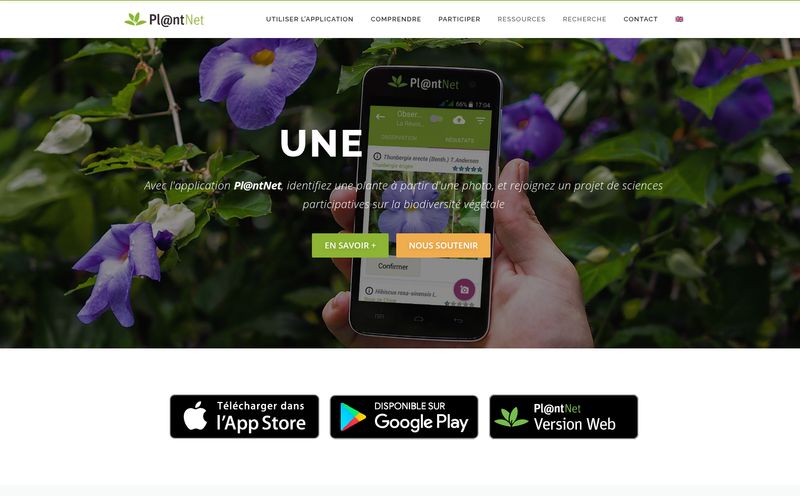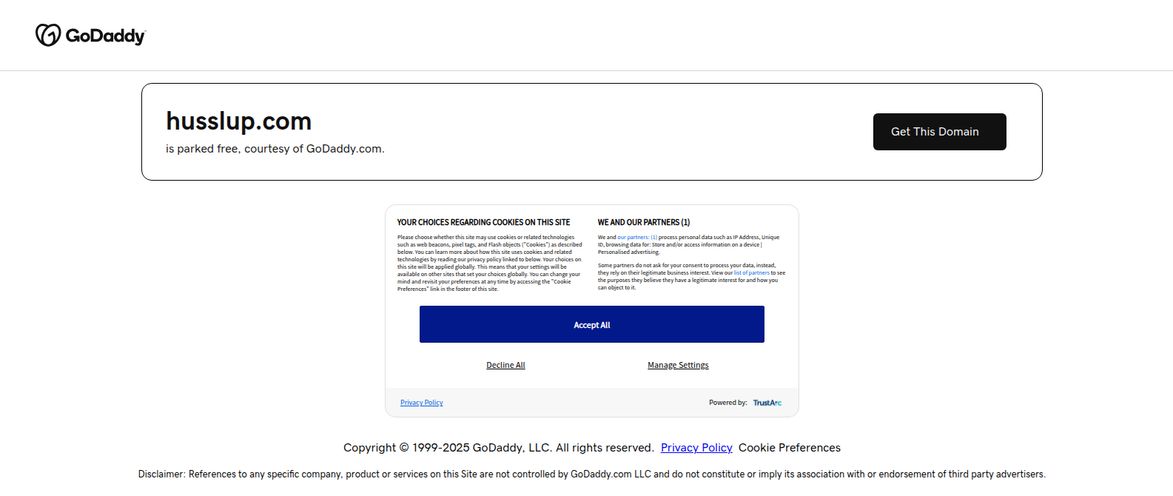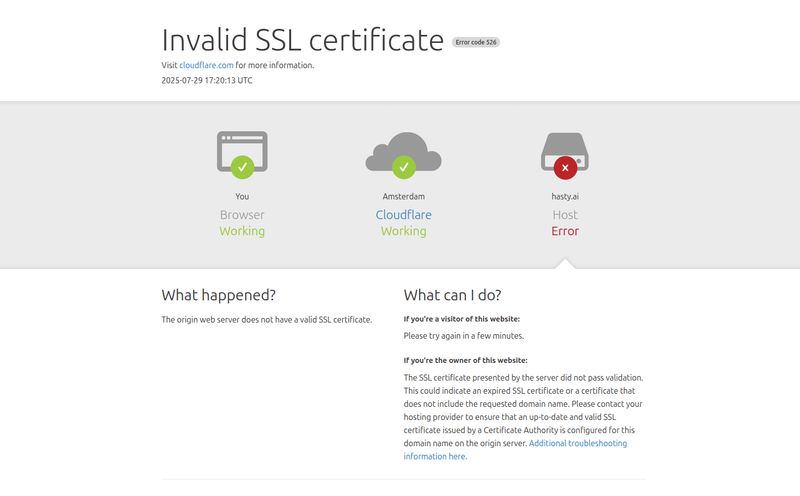I’ve been in the SEO and digital marketing game for a while now. Long enough to remember when “AI” was just a buzzword for fancy chatbots and not the world-eating force it is today. Every other day, a new tool lands in my inbox, promising to revolutionize how I work, think, and even tie my shoes. Most of them are just noise. But every so often, something pops up that makes you pause. Something different.
Last week, that something was a platform called Complexity AI.
The name itself is a bit of a paradox, isn't it? “Complexity.” In a world where every startup is trying to be “Simple,” “Easy,” or “Zen,” these guys went the other way. And the logo? A warning sign. I have to admit, my curiosity was piqued.
So, What's the Deal with Complexity AI?
On the surface, Complexity AI bills itself as an AI-powered platform for real-time news, trending topics and knowledge discovery. The big, bold promise is to put “the world’s knowledge at your fingertips.” A noble goal, for sure, but one we’ve heard before from the giants like Google and, more recently, from darlings like Perplexity AI.
But where Complexity seems to swerve is in its approach. It feels less like a bustling digital library and more like a quiet, minimalist reading room with a single, very smart librarian. The interface I saw was stripped bare—a dark background, a single search bar prompting you to “Ask anything…,” and not much else. It’s a bold statement in our age of information overload. It doesn't scream at you; it waits.

Visit Complexity AI
First Impressions and a Look Under the Hood
Honestly, I'm a sucker for a clean UI, so they had my attention right away. The dark mode is slick, and the lack of clutter is a breath of fresh air. It feels intentional. This isn’t a tool that wants to overwhelm you with a million features you’ll never use. It wants to do one thing: get you answers.
I even stumbled upon its 404 error page, which cheekily states, “This one’s too difficult even for complexity.” I got a chuckle out of that. It shows a bit of personality, a human touch behind the code. It suggests they don't take themselves too seriously, which is a rare and welcome trait in the tech world.
The Promised Land: A Breakdown of the Features
Digging into what it actually does, or claims to do, we find a few core pillars. It's not a long list, which again, I appreciate. Focus is a good thing.
Real-Time News Search
This is a big one for me. As an SEO, staying on top of news and trends is half the battle. But platforms like X (formerly Twitter) are a firehose of noise, and Google News can sometimes feel a day late. The idea of an AI that can cut through the chatter and deliver genuinely real-time news is massively appealing. The question is, how real-time are we talking? And how does it filter out the junk? The platform is a bit tight-lipped on the specifics.
AI-Powered Search & Trending Topics
This is the engine of the whole operation. Instead of just giving you a list of links to sort through, the goal here is synthesis. You ask a question, and the AI finds, reads, and summarizes the relevant information for you. It also claims to be able to identify trending topics based on current events, which could be a powerful tool for content strategists and journalists. It's about getting the signal without all the static.
Knowledge Sharing Through Links
The platform also mentions facilitating knowledge sharing by sharing links. This is probably the vaguest feature. Is it just a simple share button, or is there a more collaborative layer? Could teams use it to build a shared knowledge base? I could see this being incredibly useful for agencies or research teams, but for now, it's an open question.
The Elephant in the Room: Where's the Rest of It?
Okay, let's be real. For all its intriguing minimalism, Complexity AI is also a bit of a ghost. The information available is sparse. The descriptions are broad. It feels like we're looking at the blueprint of a really cool house that hasn't been fully built yet. This isn't necessarily a bad thing—it could be in a closed beta or a pre-launch phase. But for those of us eager to kick the tires, it's a little frustrating.
This lack of detail is the platform's biggest weakness right now. We don't know what LLM it's running on, what its data sources are, or the finer points of its features. It’s a black box, and in an industry built on data and transparency, that makes people nervous.
Potential vs. Reality: A Quick Tally
To put it all in perspective, here's how I see it breaking down:
| The Potential Upside | The Current Question Marks |
|---|---|
| Hyper-focused, real-time news aggregation could be a game-changer for staying current. | How does it define "real-time" and filter out low-quality sources? |
| The minimalist UI reduces cognitive load and focuses the user on their query. | Is the minimalism a choice, or does it reflect a lack of developed features? |
| AI-powered search that synthesizes information saves a ton of research time. | What are the limitations of the AI? Can we trust its summaries? |
| Suggestions for relevant topics could spark great content ideas. | How personalized or insightful are these suggestions? |
And What About the Price Tag?
If you're wondering what this will cost you, you're not alone. I looked everywhere, and there is currently no pricing information available for Complexity AI. No pricing page, no mention of tiers, nothing. This usually means one of two things: it's either in a free, early-access stage, or the creators haven't decided on a monetization strategy yet.
My gut tells me we'll eventually see a freemium model, similar to its competitors. A free tier with limited queries and a pro subscription for power users and teams. That seems to be the standard playbook in the AI space right now.
Frequently Asked Questions About Complexity AI
Is Complexity AI free to use?
At the moment, it appears to be. There is no public pricing information, which often suggests a tool is in a free beta or pre-launch phase. This could change in the future.
How is Complexity AI different from Google Search?
The main difference seems to be the output. Google gives you a list of links (a job for you to do), whereas Complexity AI aims to synthesize information from across the web to provide a direct answer or summary, much like other AI search assistants. It also seems to have a stronger focus on real-time news.
What kind of AI does Complexity AI use?
The company hasn't specified. It's almost certainly powered by a large language model (LLM), but whether it's a proprietary model or one built on an existing foundation like GPT-4 or Claude is unknown.
Who would find Complexity AI most useful?
Based on its features, it would be a great tool for journalists, content creators, SEO professionals, market researchers, and students—anyone who needs to quickly get up to speed on new topics or track developing stories.
Is the platform still under development?
All signs point to yes. The limited information and vague feature descriptions suggest that Complexity AI is an emerging platform that is likely still being actively developed and refined.
Final Thoughts: Keep This One on Your Radar
So, is Complexity AI the next big thing? The honest answer is: it’s too soon to tell. It’s an intriguing, mysterious new player in a very crowded field. I love the philosophy behind it—the minimalism, the focus on signal over noise, the slightly edgy branding.
It has the potential to be a wonderfully effective tool. But potential doesn't pay the bills or write my articles for me. For now, it remains an enigma. I’m not about to change my homepage to it just yet, but I've definitely bookmarked it. In the great AI gold rush of the 2020s, sometimes the quietest, most mysterious prospectors are the ones who strike it rich. I’ll be watching this one. You probably should too.
References and Sources
- Perplexity AI Official Website - For comparison of AI search engine capabilities.
- Initial platform discovery and analysis based on publicly available interface and descriptions from early 2024.



